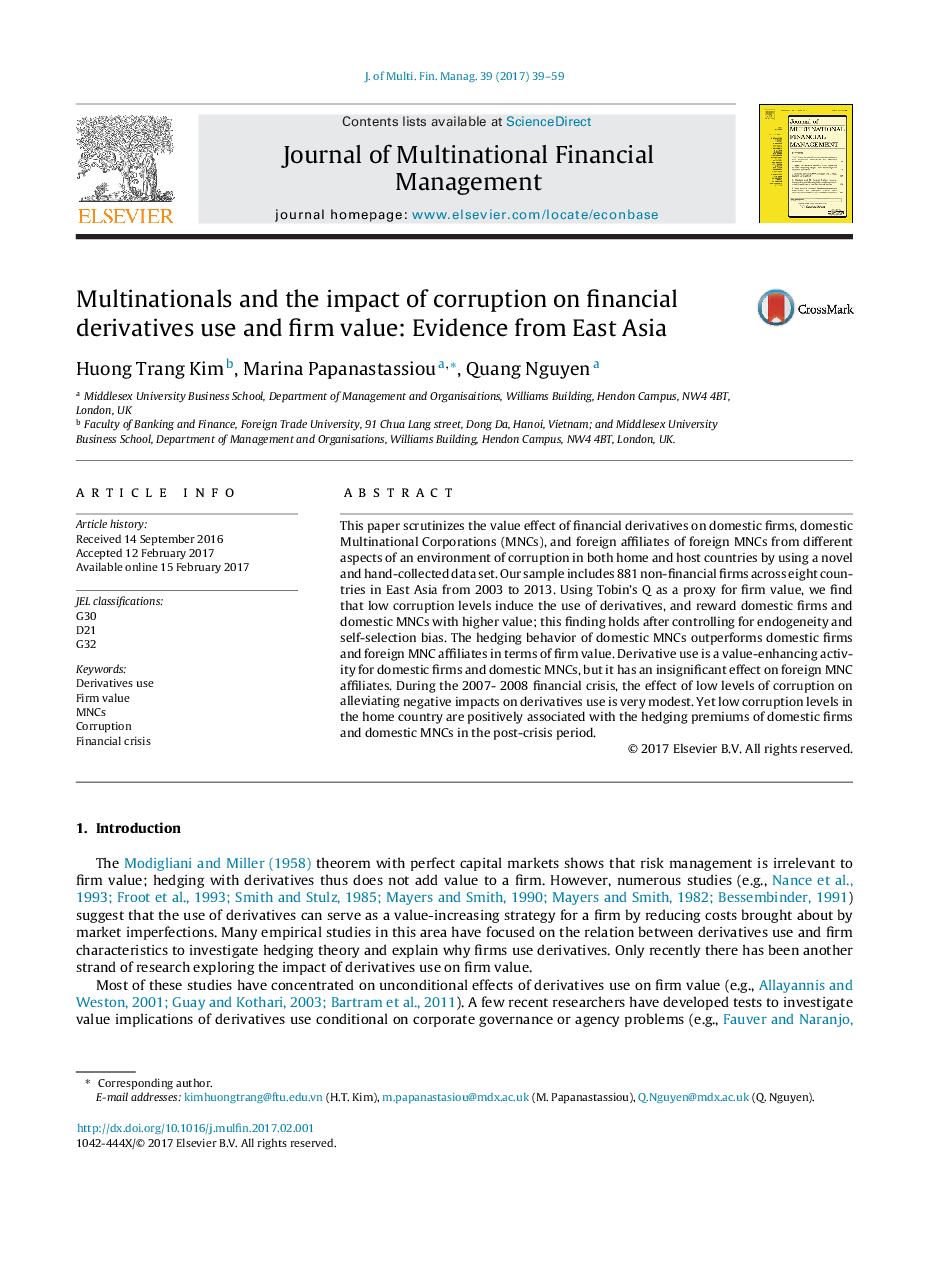| Article ID | Journal | Published Year | Pages | File Type |
|---|---|---|---|---|
| 5101594 | Journal of Multinational Financial Management | 2017 | 21 Pages |
Abstract
This paper scrutinizes the value effect of financial derivatives on domestic firms, domestic Multinational Corporations (MNCs), and foreign affiliates of foreign MNCs from different aspects of an environment of corruption in both home and host countries by using a novel and hand-collected data set. Our sample includes 881 non-financial firms across eight countries in East Asia from 2003 to 2013. Using Tobin's Q as a proxy for firm value, we find that low corruption levels induce the use of derivatives, and reward domestic firms and domestic MNCs with higher value; this finding holds after controlling for endogeneity and self-selection bias. The hedging behavior of domestic MNCs outperforms domestic firms and foreign MNC affiliates in terms of firm value. Derivative use is a value-enhancing activity for domestic firms and domestic MNCs, but it has an insignificant effect on foreign MNC affiliates. During the 2007- 2008 financial crisis, the effect of low levels of corruption on alleviating negative impacts on derivatives use is very modest. Yet low corruption levels in the home country are positively associated with the hedging premiums of domestic firms and domestic MNCs in the post-crisis period.
Related Topics
Social Sciences and Humanities
Economics, Econometrics and Finance
Economics and Econometrics
Authors
Huong Trang Kim, Marina Papanastassiou, Quang Nguyen,
